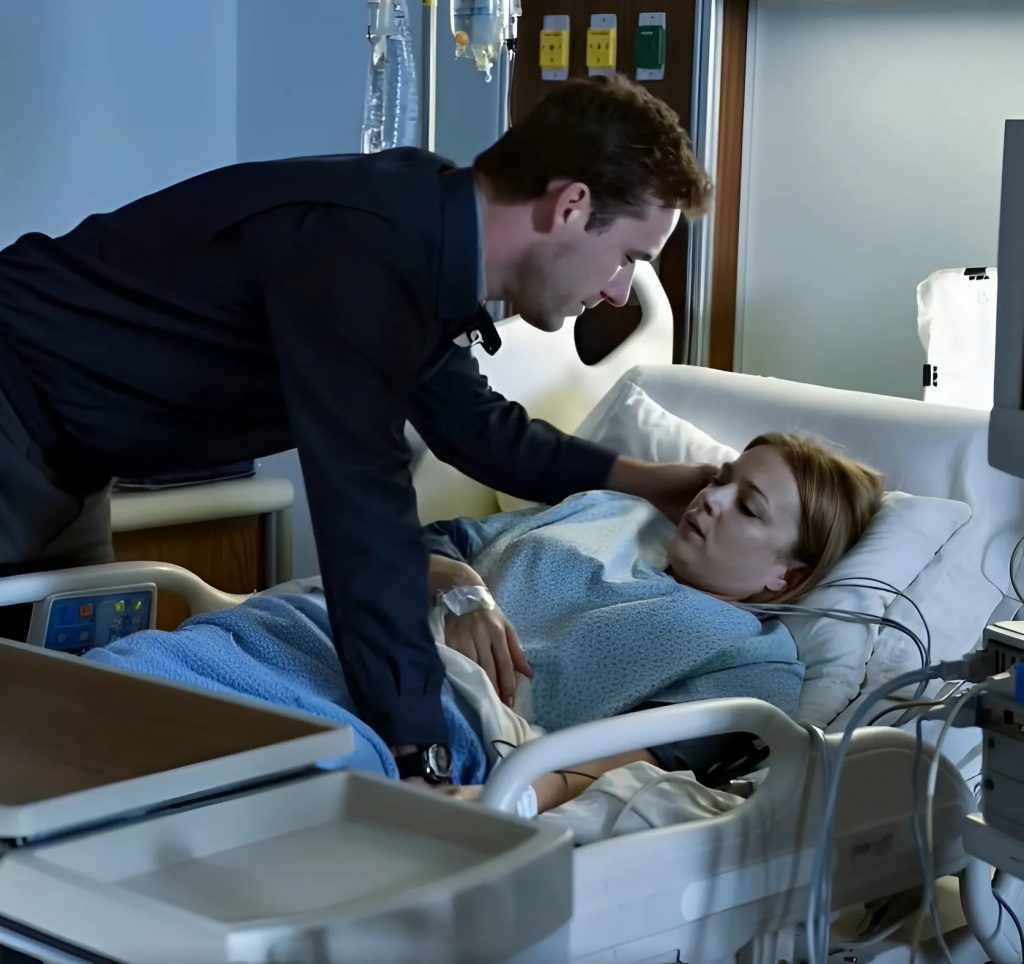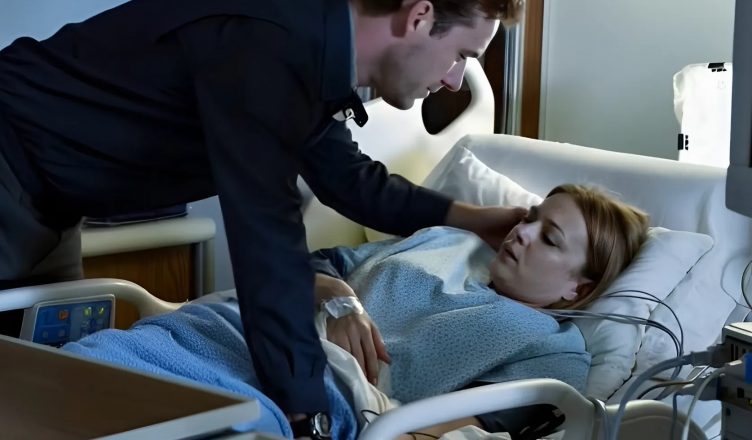The hospital corridor welcomed him with its usual harsh fluorescent light and the sharp scent of disinfectant. Kirill tightened his grip on the small bouquet of white roses — hastily bought from a vendor near the clinic. He didn’t particularly like flowers. He didn’t believe they brought comfort. But he knew appearances mattered. A husband without flowers at the bedside of his dying wife would seem heartless.
He avoided the elevator, as always. He couldn’t stand the idea of being trapped in a small metal box with strangers offering sympathetic looks or asking polite, painful questions. Instead, he climbed the concrete stairwell, step by heavy step, letting the rhythm of his movements silence the turmoil in his mind.
Each step brought the same grinding thoughts back into focus. How much longer would this drag on? How much more money would he pour into a life that had already, for all practical purposes, ended? Every day in this private clinic was bleeding him dry. Treatments, machines, nurses — all siphoning money he could have spent living a very different life.
And for what? Larysa wasn’t getting better.
The doctors spoke of «hope» and «possibilities,» but Kirill saw only endless bills and a growing sense of suffocation. His irritation had hardened into something uglier — something he didn’t dare admit, not even to himself in full words.
He thought about the apartment. The accounts. The properties. The business they had built together. All of it could be his — completely, cleanly — if only nature took its inevitable course.

When he stepped into the hospital room, the smell of antiseptic hit him first. Then he saw her. Larysa, lying so still, so small under the thin blanket, hooked up to beeping, blinking machines that did more living than she did. She looked like a ghost.
Kirill placed the flowers mechanically on the bedside table and leaned over her.
He whispered, low and trembling not with sadness, but with anger he could no longer contain.
— I wish you would just go already, Larysa, — he murmured. — You’ve taken everything from me. My years. My money. My freedom. I’m tired. I want my life back.
The words hung in the sterile air, unchallenged. Larysa remained motionless. Only the soft, steady beeping of the heart monitor acknowledged her lingering existence.
Kirill straightened, ready to leave without looking back.
But then he felt it. A sensation he couldn’t explain. A presence. Eyes on him.
He scanned the room. It was empty, save for Larysa and the humming machines. Yet the feeling wouldn’t leave. It prickled his skin, tightened his chest.
That’s when he noticed it — a slight movement beneath the bed.
Cautiously, he knelt and peered underneath.
And there he saw him.
Curled on the cold floor, hidden in the shadows, was Nikita — their 14-year-old nephew. The boy they had taken in, the boy who had spent countless weekends and holidays at their home, who adored Larysa like a second mother.
Nikita’s wide, terrified eyes stared back at him. He had heard every word.
The silence between them lasted no more than a few seconds, but it felt endless. Kirill’s mind raced, desperate for an excuse, a lie, some way to explain the unforgivable. But it was too late.
Slowly, Nikita crawled out from under the bed. His face was pale, his hands trembling, but in his eyes burned a cold fire — a fire Kirill had never seen before.
— I heard everything, — the boy whispered. — Everyone will know.
And then he ran.
The door swung open and slammed shut behind him, leaving Kirill alone with the machines, the flowers, and the unbearable weight of his own words.
He stood frozen, the beeping of the monitors now sounding like the tolling of a distant bell.
Because sometimes the worst confessions are not shouted in anger, but whispered in despair. Words that once spoken, cannot be taken back.
Words that echo forever.
